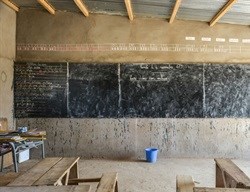
Top stories






More news















Fulfilling this role and providing secondary school learners with the skills, direction and qualifications they need to succeed at university is the International Pre-University College (IPC). Formerly known as the St Stithians A Level College, IPC is an independent school that develops students with a fervent will to learn and strong academic capabilities through providing affordable, relevant and rigorous education.
Its ability to assist in addressing the country's deficit in good quality graduates comes under the spotlight on 20 November, 2013, when Professor Jonathan Jansen, the Rector and vice-chancellor of the University of the Free State, tackles weakening university preparedness and increased university drop-outs in his presentation, Bridging the Gap between Secondary School and Higher Education, at a special event hosted by the IPC.
"Approximately 700,000 Grade 12 learners are currently writing matric examinations. If we're lucky, the dismal figure of 26.6% of learners that passed with a university exemption last year will increase in 2013, but by how much? South Africa needs many, many more good quality matriculants who can go on to succeed at university. The question is: Where are we going to find these learners? It is my hope that programmes like that of the IPC, which aim to better prepare learners, will make a very real difference in this regard," said Professor Jansen.
The issue of poor-quality matriculants was highlighted earlier this year when the Council on Higher Education's (CHE) report on university performance pointed to poor secondary school academic preparation as being "the dominant learning-related reason" for poor tertiary level performance. The report also said there was "no prospect" that schools would be able to produce the number of adequately prepared matriculants required "in the foreseeable future". Good quality graduates were necessary, it said, for "all forms of social and economic development".
This is the exact context within which the IPC functions. The school offers a completely unique educational experience that trains young people to cope with further study by providing them with skills essential to tertiary studies with a particular emphasis on enhancing mathematics, science and business skills.
"We understand that South Africa needs better quality matriculants - as many as 100,000, according to the CHE report. Which is why, as a world-class pre-university programme at the leading edge of international education trends, we provide a holistic education offering that aims to broaden the educational experiences of each student. We offer small classes for personalised attention in a structured environment to ensure the quality of our graduates," said Joan Hope-Jones, IPC principal.
The IPC is registered with the Gauteng Department of Education, is a member of Independent Schools Association of Southern Africa (ISASA) and has Cambridge Fellowship status. It is a University of Cambridge International Examinations Centre that offers IGCSE, AS and A Level Courses, Cambridge International Certificate for Teachers and Trainers (CICTT) and Cambridge International Diploma for Teachers and Trainers (CIDTT).
It offers an internationally recognised qualification that qualifies for matriculation exemption and that is accepted at South African universities, as well as an accelerated one-year post-matric programme for matrics wanting to improve their prospects of obtaining a university entrance.